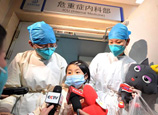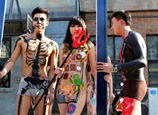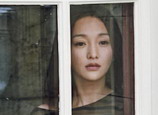
In reaction, the monks said the number of residents has been increasing. Currently, the temple houses some 30 monks as well as a number of other Buddhist faithful. The original living quarters date back to the Song Dynasty (960-1270) and are not suitable or spacious enough for current living requirements.
Liu said the monks' demands were reasonable but not conducive to appropriate protection of the temple's relics. He explained that during the Tang and Song dynasties, the central pagoda was surrounded by trees and grass but new halls and buildings are pressed right up against it.
Modern amenities such as electricity and central heating could potentially wreak devastating damage to the relics.
"It is important to protect the integrity of religious culture by allowing the monks to reside there but it is not suitable to have them living inside the temple in such conditions. So I do think the government plan is acceptable," Liu said.
Tourism boost
Located in a hard-to-reach rural setting, the temple is not an immediate candidate to be a tourist hotspot. This made it a perfect retreat for monks and Buddhist worshippers, with visitors praising its quiet and calm locale.
However, even without applying for UNESCO World Heritage status yet, the temple has become crowded of late due to increased media attention.
Cars were parked from the temple door all the way down the hill as tourists flocked there after hearing the news.
Outside, a few enterprising villagers have set up vending stalls, peddling incense and refreshments. A vendor could earn over 300 yuan by selling incense during this weekend, which was nearly twice compared to other weekends, according to several tourists who visited the site over the weekend.
"Some people came because they worried the temple would change if the buildings were demolished," Kuanshu said.
In the past, the temple charged 10 yuan for entry tickets from the non-Buddhists. But after the number of visitors soared, the temple opened its doors freely to all.
Kou said that the monks appreciated the widespread public concern and refused to take advantage of this attention.
"I was stunned that the temple decided not to charge entry fees. If it was taken over by the authorities or other parties, could such a thing happen?" Lei said.
Along with other Buddhists working at the temple, Kou had to stop his original duties and joined a team to help cope with the visitors and interview requests from the media.
Although feeling a bit tired after accepting so many interviews, Kuanshu is glad that the buildings remain up for now and is leading the monks in preparing for upcoming religious festivities.
For years, the temple's income has relied heavily on visitor donations and the monks live humbly.
"Some people might think we are being foolish as attaining the UNESCO status would bring in more money and help develop the temple. But to us, nothing is more important than staying here and following the old practices, as Master Xuanzang did long ago," said Kuanshu.




















![]()
